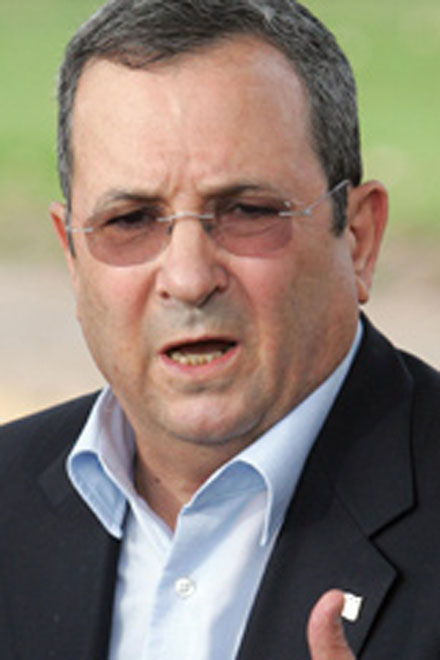Israel and the US have clocks "ticking at a different pace for each of us," on the issue of Iran's disputed nuclear programme, Israeli Defence Minister Ehud Barak said late Thursday, dpa reported.
Speaking at a function of his Independence Party in Tel Aviv, he said that while the two countries "have their differences, Israel keeps its sovereign right to act independently, and the US understands this."
"There is no doubt about the US readiness to face the challenge on every level, only Israel will take decisions regarding its future and security," he added.
Barak had met earlier Thursday with the vice chairman of the US Joint Chiefs of Staff, James Winnefeld, who is in Israel for a working visit.
Vice-Admiral Winnefeld is the latest in a slew of US officials who have visited Israel in the past months.
Barak's comments Thursday come amid talk that the possibility of an Israeli attack to thwart Iran's suspected nuclear weapons programme may be receding, after Premier Benjamin Netanyahu called this week for the international community to set down a red line for Iran, saying the clearer the line, "the smaller the chance of a conflict."
Citing unnamed sources "very close" to Netanyahu, Israel's Channel 10 television news said Thursday that an Israeli attack is becoming less likely.
Netanyahu is due to meet President Barack Obama in New York at the end of the month, and if the US leader outlines red lines, and gives his personal commitment, Israel will not attack, the report said.
Speculation had grown in Israel in recent weeks that an attack on Iran could taker place before the US presidential election in November.
A unilateral Israeli strike is opposed by Washington and the international community, and Israeli officials have admitted that at best, it could only delay Iran's nuclear programme, not destroy it totally.
But Netanyahu and Barak have said that international sanctions and pressure on Tehran are not succeeding in convincing Iran to shut down its nuclear activities.
Israel sees a nuclear-armed Iran as an existential threat, pointing to repeated statements by Iranian leaders that the Jewish state should be wiped off the map.
Iran denies Western allegations that it is seeking to build a nuclear weapon and insists that its nuclear programme is solely for peaceful purposes.






